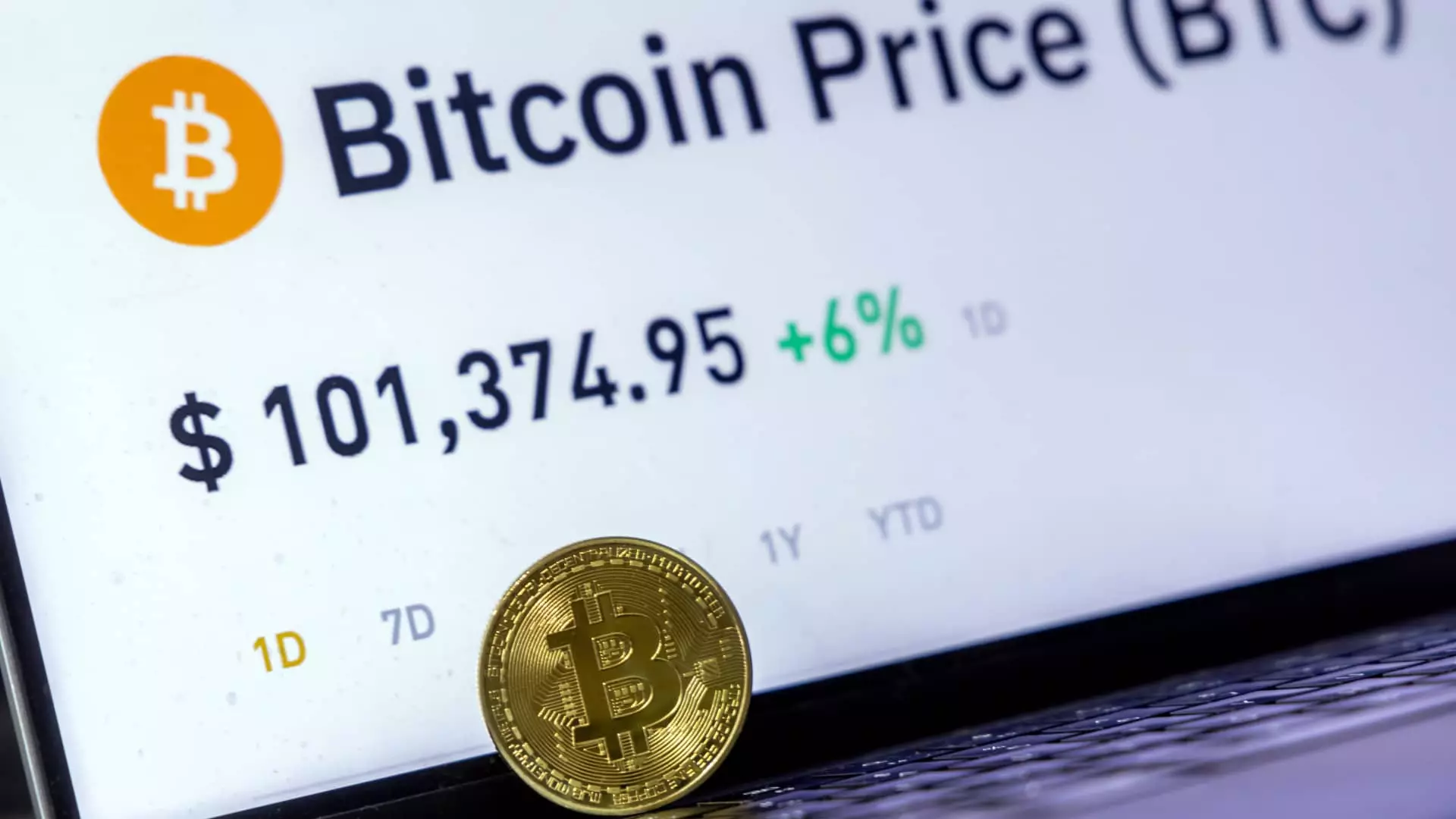In recent times, Bitcoin, the pioneering cryptocurrency, has achieved a monumental milestone by surpassing the $100,000 mark for the first time in its history. This remarkable achievement is a culmination of various factors, including increasing institutional acceptance, significant political developments, and changing perceptions within the financial community. As we dissect the events leading to this surge, it becomes evident that the cryptocurrency landscape is undergoing a significant transformation.
The year 2024 has been pivotal for Bitcoin, with a staggering increase of over 140% in value. This sharp rise resulted from an unprecedented influx of institutional investments, particularly following the launch of Bitcoin Exchange-Traded Funds (ETFs) on January 11. Funds like the iShares Bitcoin Trust (IBIT) have been game-changers, attracting billions of dollars from institutional investors who were once skeptical of digital assets. The dramatic acceptance of Bitcoin by Wall Street marks a departure from its previous classification as a speculative play for retail traders. Instead, it is now being embraced as a legitimate asset class, influencing new investment strategies.
The influx isn’t limited to passive investments through ETFs; prominent companies, such as MicroStrategy, also made substantial investments, illustrating a new trend where tech firms leverage Bitcoin as a significant component of their balance sheets. According to Geoff Kendrick from Standard Chartered Bank, institutions have cumulatively purchased 683,000 Bitcoins year-to-date. This surge in institutional activity, particularly in the aftermath of the recent U.S. elections, has been pivotal in pushing Bitcoin’s valuation through the $100,000 threshold.
The evolving dynamics of the political landscape also play a crucial role in Bitcoin’s ascent. The 2024 U.S. presidential election cycle has intensified discourse around cryptocurrency, and Bitcoin has emerged as a focal point. Significant spending by crypto advocates during the election reflects a strategic effort to shape policies in favor of digital currencies. President-elect Donald Trump, whose recent rhetoric indicates a newfound support for Bitcoin, attended the Bitcoin Conference in Nashville as part of his campaign. This pivot represents a critical shift in political perception, which could potentially lead to a more favorable regulatory environment for cryptocurrencies.
Moreover, the anticipated appointment of Paul Atkins as the head of the Securities and Exchange Commission (SEC) denotes a potential shift toward a more accommodating regulatory framework for cryptocurrencies. Given the previous administration’s more adversarial stance toward digital assets, these changes could facilitate a more harmonious relationship between traditional finance and cryptocurrencies, ultimately benefitting the entire ecosystem.
As Bitcoin cements its position as a serious competitor not only to gold but also in the broader spectrum of financial assets, it raises important questions about the future of this digital currency. With Federal Reserve Chair Jerome Powell acknowledging Bitcoin as a rival to gold rather than a threat to the U.S. dollar, it implies a level of recognition that could further persuade institutional and retail investors alike. This nuanced perspective from a central banking authority may lend Bitcoin additional legitimacy, attracting a larger pool of investors looking to diversify their portfolios away from traditional assets.
However, the road ahead comes with its own challenges. Despite achieving significant milestones, Bitcoin remains susceptible to market volatility and regulatory scrutiny. As institutional investors dive deeper into cryptocurrencies, the potential for larger swings in value becomes a foreseeable risk. Furthermore, regulations will continue to change, and navigating this dynamic landscape will be crucial for investors and companies alike.
The breach of the $100,000 mark is more than just a monumental figure; it signifies a broader acceptance and maturation of Bitcoin within the financial ecosystem. As institutional and political landscapes evolve, Bitcoin’s trajectory will undoubtedly continue to shape and be shaped by these elements. Whether it solidifies its place as a mainstream financial asset or faces setbacks remains to be seen. Nonetheless, what is clear is that Bitcoin has entered a new chapter, one that promises both exciting opportunities and significant challenges as it matures into a critical component of the global economic framework.

